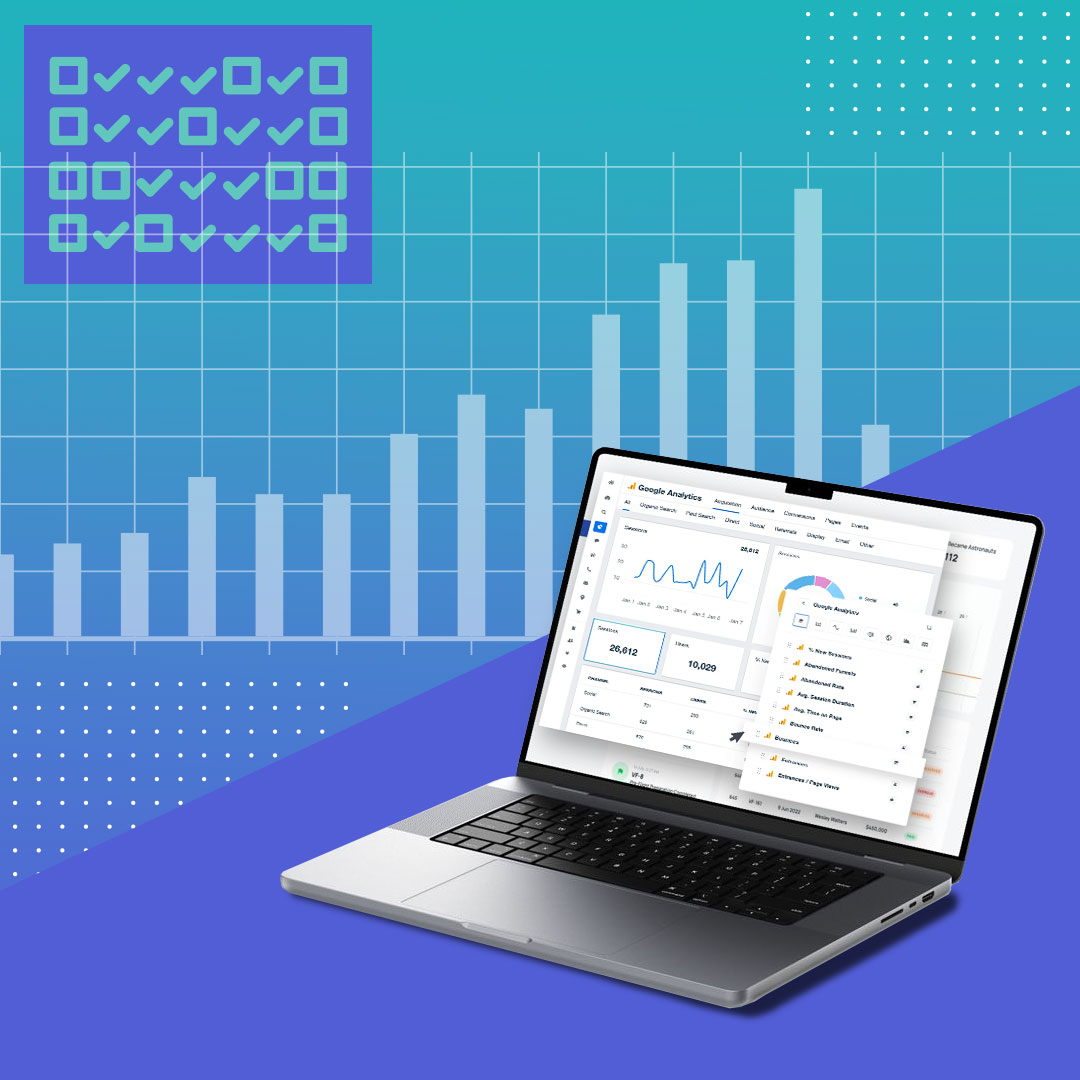The Role of Data Analytics in Driving Marketing Success: Leveraging Insights for Growth
In today’s hyper-competitive business landscape, data is the new currency that fuels marketing success. Harnessing the full potential of data analytics has become essential for marketers seeking to stay ahead of the curve and deliver targeted, impactful campaigns that drive tangible results. In this blog, we’ll explore how data analytics plays a pivotal role in shaping marketing strategies, the key benefits it offers, and how you can leverage data insights to propel your brand to new heights.
The Data-Driven Revolution in Marketing
The advent of digital technologies and the proliferation of online channels have led to an explosion of data, providing marketers with a treasure trove of information about consumer behavior, preferences, and trends. Data analytics is the process of mining, interpreting, and drawing meaningful conclusions from this data, empowering marketers to make informed decisions and create laser-focused campaigns.
Data analytics offers a comprehensive understanding of customer demographics, buying patterns, and interactions with your brand across various touchpoints. By uncovering actionable insights from this wealth of information, you can identify opportunities, predict trends, and anticipate customer needs with unmatched precision.
Enhancing Customer Segmentation and Personalization
One of the most significant advantages of data analytics lies in its ability to segment customers based on their characteristics, behaviors, and preferences. Gone are the days of one-size-fits-all marketing; personalization is the new norm.
By utilizing data analytics, you can create dynamic customer personas and craft tailored messages that resonate with specific audience segments. Personalized marketing builds stronger connections with customers, fostering brand loyalty and increasing the likelihood of conversions.
Optimizing Marketing Campaigns with Data-Backed Decisions
Gone are the days of relying solely on gut feelings or intuition when designing marketing campaigns. Data analytics empowers marketers to make data-backed decisions, leading to more effective and efficient strategies.
With data analytics, you can measure the performance of various marketing initiatives, identify which channels bring the highest ROI, and allocate your resources accordingly. By analyzing data in real-time, you can quickly identify underperforming campaigns and pivot your strategy to capitalize on emerging trends.
Identifying Emerging Trends and Market Opportunities
In the fast-paced digital world, trends and market dynamics can change overnight. Staying ahead of the competition requires a keen eye on emerging trends and opportunities.
Data analytics equips marketers with predictive capabilities, allowing them to forecast trends and identify potential opportunities before they become mainstream. By leveraging these insights, your marketing agency can position clients as industry pioneers, gaining a competitive edge in the market.
Improving Customer Experience and Satisfaction
In today’s customer-centric era, providing an exceptional experience is non-negotiable. Data analytics enables you to map the customer journey, identify pain points, and optimize touchpoints to enhance customer satisfaction.
By tracking and analyzing customer interactions, you can identify bottlenecks in the user experience, optimize website navigation, and improve response times, leading to higher customer retention and advocacy.
Measuring Key Performance Indicators (KPIs)
As the saying goes, “What gets measured gets managed.” Data analytics offers a suite of metrics and Key Performance Indicators (KPIs) to monitor the success of marketing campaigns.
From click-through rates (CTR) and conversion rates to customer acquisition costs and lifetime value, data analytics provides valuable insights into the effectiveness of your marketing efforts. By consistently tracking these metrics, you can make data-driven adjustments and continually optimize your marketing strategies.
A/B Testing and Data-Driven Decision Making
Data analytics enables marketers to conduct A/B testing, a powerful technique that compares two versions of a marketing element to determine which one performs better. By experimenting with different visuals, headlines, call-to-action buttons, or email subject lines, you can fine-tune your campaigns to achieve optimal results.
A/B testing allows you to make data-driven decisions, avoiding guesswork and ensuring that every aspect of your marketing efforts is backed by tangible evidence. It helps you understand what resonates with your audience, leading to continuous improvement and higher conversion rates over time.
Utilizing Predictive Analytics for Lead Generation
Lead generation is a critical aspect of marketing success, and predictive analytics can revolutionize this process. By analyzing historical data and customer behavior patterns, you can identify potential leads with a high likelihood of converting into paying customers.
Predictive analytics goes beyond traditional lead scoring, providing deeper insights into customer intent and behavior. This helps your marketing agency focus its efforts on the most promising prospects, saving time and resources while increasing lead quality and conversion rates.
Data-Driven Content Marketing Strategies
Content marketing remains a powerful tool for engaging audiences and building brand authority. Data analytics can significantly enhance your content marketing strategies.
By analyzing the performance of various content pieces, you can identify the type of content that resonates most with your audience. Whether it’s blog posts, videos, infographics, or social media content, data analytics helps you understand what drives engagement and which topics are most relevant to your target audience.
Moreover, data analytics allows you to identify content gaps and areas where your brand can establish thought leadership. Armed with these insights, your marketing agency can create a data-driven content calendar that delivers value, establishes your clients as industry experts, and attracts a loyal following.
Competitor Analysis and Market Intelligence
In a competitive business landscape, understanding your competitors is crucial for staying ahead. Data analytics provides you with valuable insights into your competitors’ marketing strategies and performance.
Through competitive analysis, you can identify gaps in the market, discover untapped niches, and differentiate your clients’ brands from the competition. Data-backed market intelligence enables you to make informed decisions, avoiding potential pitfalls and capitalizing on opportunities your rivals may have missed.
Data Privacy and Ethical Considerations
As data analytics becomes more pervasive, it’s essential to address data privacy and ethical concerns. Customers are increasingly aware of data security and the potential misuse of their personal information.
Your marketing agency must prioritize data privacy and adhere to relevant regulations to build trust with customers. Educate your clients about the importance of transparent data collection, consent, and the responsible use of customer data.
At Spectruss, we believe that data analytics is the cornerstone of successful marketing strategies. As a leading marketing agency, we are committed to harnessing the power of data to deliver unparalleled results for our clients. Here’s how we leverage data analytics to create tailored marketing solutions for businesses:
- Data-Backed Market Research: At the heart of every successful marketing campaign lies a deep understanding of the target market. Our team at Spectruss begins by conducting comprehensive data-backed market research to identify customer demographics, behaviors, pain points, and preferences. By tapping into data from various sources, including customer surveys, website analytics, and social media insights, we gain valuable insights that inform our strategies.
- Advanced Customer Segmentation: We understand that every customer is unique, and one-size-fits-all approaches rarely yield optimal results. Using data analytics, we segment our clients’ customer bases into distinct groups based on shared characteristics and behaviors. This enables us to craft highly targeted campaigns that resonate with specific audience segments, leading to increased engagement and conversions.
- Personalization at Scale: In today’s digital landscape, personalized experiences are paramount for attracting and retaining customers. Spectruss takes personalization to the next level by leveraging data analytics to create customized content, recommendations, and offers for each customer segment. This level of personalization enhances customer satisfaction, drives brand loyalty, and fosters lasting relationships.
- Continuous Performance Monitoring: We believe that data analytics is not a one-time exercise but an ongoing process. Spectruss continuously monitors the performance of our clients’ marketing campaigns, measuring key performance indicators (KPIs) such as click-through rates, conversion rates, and customer acquisition costs. By analyzing real-time data, we can quickly identify areas of improvement and optimize strategies for maximum impact.
- Predictive Analytics for Strategic Planning: Anticipating future trends and customer behavior is essential for staying ahead in a rapidly changing market. Our team at Spectruss employs predictive analytics to forecast emerging opportunities, potential challenges, and market trends. This allows our clients to proactively adapt their marketing strategies and position themselves as industry leaders.
- Competitive Intelligence: Spectruss understands the significance of keeping a close eye on competitors’ moves. Using data analytics, we conduct comprehensive competitive intelligence, analyzing rivals’ marketing efforts, and identifying gaps in the market. Armed with this information, we craft marketing strategies that set our clients apart from the competition and resonate with their target audience.
- Data-Driven Decision Making: At Spectruss, data drives everything we do. From conceptualizing campaigns to making strategic decisions, our marketing strategies are grounded in data-backed insights. By basing our decisions on tangible evidence rather than assumptions, we ensure that our clients’ resources are invested wisely, leading to enhanced ROI and business growth.
Conclusion
Data analytics is not just a buzzword for us at Spectruss; it is the bedrock of our marketing approach. By combining the power of data with our creativity and expertise, we create marketing strategies that deliver tangible, measurable results for our clients. Whether it’s personalized campaigns, predictive analytics, or continuous performance monitoring, our data-driven approach sets us apart as a marketing agency that is committed to driving success for businesses in a data-dominated world.
Partner with Spectruss today, and let data analytics unlock the full potential of your marketing endeavors.








